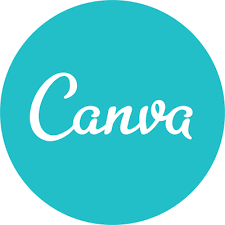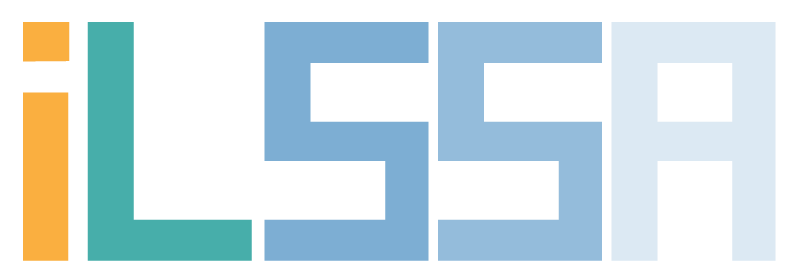FAQ
Frequently Asked Questions
Below you’ll find frequently asked questions related to SILS resources! Have other things you think belong in this list? Send your questions to ilssa@unc.edu!
Communications:
How do I join the “Official” SILS Facebook Group?
What email lists exist for SILS? How do I join them?
Manning Hall:
Can I get a locker?
Does SILS have gender-neutral bathrooms?
SILS Courses:
How are course plans reviewed? How are professors chosen for classes?
How are classes scheduled?
How do you decide what is taught each semester?
How does the SILS curriculum work?
Why are some courses only offered every other year?
How do students get involved with faculty research?
Career Services:
In what forms does career advice come?
Can we have access to the alumni database/network?
Do current SILS students have any opportunities to advertise the school beyond website testimonials?
Does SILS have its own career fair?
Communications:
How do I join the “Official” SILS Facebook Group?
You can request membership into the UNCSILS group on facebook! This group is for the current and past SILS community to share events and ask questions. Membership includes current students, staff, faculty and alumni.
What email lists exist for SILS? How do I join them?
Please see https://sils.unc.edu/communications/email-lists.
Manning Hall:
Can I get a locker?
Yes! Talk to Lara Bailey (ljbailey@email.unc.edu) about reserving one at any time.
Does SILS have gender-neutral bathrooms?
Yes! As of Fall 2021 we do have a gender-neutral bathroom on the second floor—next to the Student Lounge! The bathroom is single stall, and available to anyone wishing to use it. This is the result of years of lobbying by ILSSA and we’re very proud of it!
SILS Courses:
How are course plans reviewed? How are professors chosen for classes?
The associate dean is responsible for scheduling classes and assessing adjunct instructors. Full-time faculty are assessed by the Dean of the school annually.
How are classes scheduled?
Lara Bailey enters them all into Connect Carolina during what the registrar calls “Course Schedule Maintenance.” The schedule for the next upcoming fall is usually determined a year in advance because you all have to register for fall in April. The spring schedule is determined over the summer because again registration occurs in November for the spring.
How do you decide what is taught each semester?
All of the required courses are offered every semester because of SILS’ admissions cycle (fall, spring and summer). We need those courses to be available so that no matter when someone starts the program they will be able to graduate on time. Electives are harder and are determined by faculty/adjunct availability.
How does the SILS curriculum work?
Note: All this information and more can be found at: https://go.unc.edu/silscurriculum
The Core (6 hours):
All MSLS and MSIS students take the following 2 core courses:
INLS 776: Ethics, Values and Society (spring semester):
This course explores ethical issues related to information, data, knowledge, and technology
in various individual, community, and societal contexts.
INLS 777: Perspectives on Information, Technology, and People (fall semester):
Examines the relationships between information, technology, and people from an array of
disciplinary, professional, cultural, and other orientations. Explores the application of diverse
perspectives to understand current matters of concern.
Course Bins:
The course bin system consists of four bins for a total of six (6) courses (18 hours) that will ensure your exposure to a broad range of professional competencies. The four bins are: Information, Services & Organizations, Technology, and People & Communities. Do note that Special topic courses such as INLS 490, 690 and 890 could possibly fulfill bin requirements. Please see visit the courses page for special topic courses being offered for a specific semester.
Elective courses:
The remaining degree hours are electives and can be chosen from the bins, the advising grids for the students chosen specialization (if applicable), or courses outside of SILS including other departments on campus, inter-institutional registration, or WISE courses. Students should consult with their advisor on their elective choices. Courses outside of SILS must be considered graduate level in order to count toward the degree.
The Capstone Experience (6 hours):
There are two options for the capstone experience at SILS which includes either a research-based master’s paper or a practicum project.
Option 1: The Research-Based Master’s Paper
Opportunity to conduct individual research and write a substantive research report under guidance of a single faculty advisor who also evaluates the work. SILS has many prior examples of master’s papers (link is external)to help you see what types of research SILS students have done in the past.
The master’s paper option might be a good choice for you if:
- You are considering applying for PHD program in the future
- You already have a strong foundation of practical elements in your chosen field such as significant work experience or have already completed multiple field experiences in your chosen area
- You enjoy working alone and excel at self-directed learning
If you chose the research paper option you will need to take the following two courses:
- INLS 778: Research Methods and Proposal Development (3rd semester)
- As part of INLS 778 you will develop at comprehensive research proposal as the final assignment in INLS 778. You will need to secure a faculty advisor who will supervise your master’s paper and evaluate your final report
- INLS 992: Master Paper (4th semester)
During your final semester you will carry out your proposed study, evaluate your findings and write your final paper.
Additional information on what the Master’s Paper involves can be found here.
Option 2: The Practicum Project
Opportunity to apply professional skills in a team-based environment with an external or internal supervisor; evaluated by supervisor, faculty 992 instructor, peers, and faculty reviewers at culmination event. For this option you woud work with a small team of students to develop and implement a real-world application of the knowledge and skills you have obtained at SILS.
The practicum project option might be a good choice for you for you if:
- You are interested in directly going into a professional practice after graduation. The project option is intended to help you demonstrate and build practical skills that are transferable to LIS work environments.
- You want the opportunity to address a real-world need and work with organizations and people outside of SILS
- You do not want to write a lengthy paper
- You want some structure to your 992 experience. Student teams will be advised by the same faculty member. Project sections of 992 will meet several times through the semester to address any issues of concern and to ensure all teams remain on track.
If you choose the practicum option you will need to take:
- INLS 779: Practicum Project Development (3rd semester)
- You will form a team and choose from an existing list of approved projects or develop your own and will develop a comprehensive project charter as the final assignment in INLS 779.
- INLS 992: Practicum Project (4th semester)
Visit the practicum project page for more information on what the practicum involves
Why are some courses only offered every other year?
Usually it is because of low enrollment or lack of instructors.
How do students get involved with faculty research?
Start by talking to faculty about their research, and trying to understand what kind of research they do and why. If you find something that someone is doing interests you, feel free to reach out to them and start a conversation about it.
Career Services:
In what forms does career advice come?
You can get advising from UNC Career Services, or from Lori Haight at SILS. One-on-one sessions with Lori are available, as well as group programming through University Career Services and The Graduate School.
SILS also has SILSAA (SILS Alumni Association) programming and networking opportunities. LAUNC-CH (Librarians Association at UNC Chapel Hill) also provides career development opportunities for SILS students.
Can we have access to the alumni database/network?
If you pay to join the UNC alumni association, access to the database comes with it. For students who request it, SILS can offer a modified listing of alumni based on geographic preferences. It will not include any alumni who have requested their information be kept confidential. Once SILS students graduate, you can use your PID through the SILS website to access the SILS alumni database.
Do current SILS students have any opportunities to advertise the school beyond website testimonials?
Yes! Want to go to a grad school fair? Participate in an information session? Talk to a prospective student? Lara Bailey needs you! Email her at ljbailey@email.unc.edu.
Does SILS have its own career fair?
SILS did have a career fair back in the 90s for quite a few years, but career fairs in general are becoming less popular for employers – they are more interested in smaller ‘branding sessions’ where they could find an audience of students interested. This is the model that NCSU, UNC-C, and Heritage Werks have used for MS students. Undergraduates and MSIS folks also have opportunities through the multiple UCS fairs each year.
Other resources:
Here are a few design-related programs, apps, and services to help you during your time at SILS:
Canva
 Canva is a great online design space that makes designing posters, flyers, and other visuals extremely easy. You will have to create an account, but set-up is fairly easy and the free version has lots of colorful templates and designs available. It is also easy to download and share your creation once you are finished.
Canva is a great online design space that makes designing posters, flyers, and other visuals extremely easy. You will have to create an account, but set-up is fairly easy and the free version has lots of colorful templates and designs available. It is also easy to download and share your creation once you are finished.
The Noun Project
 The Noun Project is an online collection of icons and images that you are free to download and use under the Creative Commons license. You will need to credit the original creator in order to use the image, but the designs are clean, attractive, and eye-catching. You will need to make an account in order to download the image.
The Noun Project is an online collection of icons and images that you are free to download and use under the Creative Commons license. You will need to credit the original creator in order to use the image, but the designs are clean, attractive, and eye-catching. You will need to make an account in order to download the image.
New York Public Library Digital Collection
 The New York Public Library Digital Collection has an extensive collection of images that you can browse through, including thousands and thousands of images in the public domain. Simply check the “Search only public domain materials” while conducting your search and you will have access to quality, high-resolution images to use and work with.
The New York Public Library Digital Collection has an extensive collection of images that you can browse through, including thousands and thousands of images in the public domain. Simply check the “Search only public domain materials” while conducting your search and you will have access to quality, high-resolution images to use and work with.
Unsplash
 Unsplash.com is a great website for finding high-resolution, copyright-free images to use for whatever purposes. You do not need an account to access and download photos, and their collection is searchable.
Unsplash.com is a great website for finding high-resolution, copyright-free images to use for whatever purposes. You do not need an account to access and download photos, and their collection is searchable.

